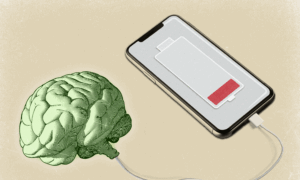Having a sense of purpose has been linked with a reduced risk of mortality and chronic disease and is associated with 35 indicators of physical, behavioral, and psychosocial health, including decreased mortality, better physical health, and improved mood.
This suggests that cultivating a sense of purpose could be a highly effective intervention for enhancing overall well-being.
A Sense of Purpose
A sense of purpose can be defined as the degree to which individuals perceive their lives as having meaning, direction, and goals.
Christine Frey, a certified health coach, counselor, and founder of Glowing Older, told The Epoch Times that having a sense of purpose means engaging in something that brings personal meaning to life.
“It is what motivates you to get out of bed each morning, making life more than just a daily grind,” she said.
This sense of purpose often involves contributing to others or making a positive impact, whether in the broader world or within one’s immediate community. A sense of purpose not only enriches your own life but also positively affects the lives of those around you, Frey added.
The Health Benefits
A 2022 health and retirement
study, published in the American Journal of Health Promotion, included nearly 13,000 participants. Over a four-year follow-up period, individuals with the highest sense of purpose had a 46 percent lower risk of mortality compared to those with the lowest sense of purpose.
Participants also experienced:
- 13 percent reduced risk of sleep problems
- 43 percent reduced risk of depression
- 23 percent reduced risk of stroke
- 16 percent reduced risk of cognitive impairment
- 28 percent reduced risk of physical functioning limitations
- 17 percent reduced risk of lung disease
Julia Nakamura, a third-year doctoral student in the health psychology program at the University of British Columbia, told The Epoch Times that several pathways may connect a sense of purpose to positive health outcomes. These include psychological buffers against stress, improved health behaviors such as exercise, lower levels of inflammation, and improved blood sugars.
Dr. Sulagna Misra, who specializes in internal, integrative, and aesthetic medicine, said that individuals with a sense of purpose often have a deeper appreciation for life, which likely stems from a strong desire to fulfill that purpose. This sense of purpose may lead people to exercise more, engage positively with others, and maintain a generally optimistic outlook. As a result, they tend to have better stress management techniques and lower rates of depression, headaches, cardiovascular disease, and hypertension.
Conversely, Misra noted that those who lack a sense of purpose may be more prone to medical issues such as depression and anxiety. They may also experience social challenges, such as isolation and feelings of shame, and find it difficult to connect with others or fully enjoy life in the present moment.
Frey explained that having a sense of purpose can lead to fulfillment and contentment, both of which trigger the release of chemicals such as serotonin or endorphins that positively impact our health and well-being.
Frey noted that a lack of purpose can cause people to feel adrift, believing they have nothing to offer or live for. A sense of purpose fosters social connections, often bringing together like-minded individuals and encouraging service to others. Without these connections, there is a risk of loneliness and isolation, which can lead to despondency, stress, and even depression, all of which negatively impact a person’s mental and physical health. Furthermore, lacking a sense of purpose can result in neglecting emotional and physical needs, as individuals may feel there is no reason to care for themselves—further endangering their health.
Finding Purpose
Purpose and self-fulfillment can be difficult for some people to find, Misra said. Most people have more than one purpose in life.
“A person can find purpose in multiple roles, such as being a mother or a woman, while also finding additional purpose through pursuing an education, engaging in charity work, or running a business,” she said. “Purpose can also evolve with life circumstances and as we age.”
“Exploring different activities and surrounding yourself with diverse people can help you discover your purpose,” she added.
Misra noted that volunteering, continuing your education, or seeking out and connecting with someone who inspires you can be particularly beneficial.
“For some, purpose gradually unfolds with life, while for others, it’s a continuous journey,” she added.
Frey said that one of the biggest misconceptions about finding purpose is the belief that it must be something grand—such as doing charitable work overseas, saving a species, or influencing government policy. However, a sense of purpose can be cultivated on a much smaller, more personal scale, she said. Everyday activities that we enjoy can also carry a sense of purpose.
Some joyful activities include the following:
- Your job may seem ordinary or mundane but choosing to encourage others each day can reframe how you think about it and how you act. Through small acts of kindness, you can make a meaningful difference in others’ lives and gain a sense of purpose and fulfillment.
- If you love being a grandparent, you can find purpose in the role by choosing to be a positive role model for your grandchildren. Teach them values such as kindness, courage, curiosity, or the importance of staying healthy—whatever qualities you believe will benefit them. By helping shape the next generation positively, you are fulfilling a meaningful purpose.
- If you’ve developed practical skills through your work or hobbies that you enjoy using, sharing these skills or applying them for the benefit of others can imbue them with purpose. This not only enhances your sense of satisfaction and fulfillment but also benefits those around you.
“I believe that purpose is often underestimated or overlooked when it comes to cultivating health and well-being. We frequently focus on aspects like nutrition, exercise, sleep, and mindfulness—each important in its own right,” Frey said. “However, having a larger reason or purpose for maintaining our health, beyond personal gain, is what truly gives life meaning and makes it worth living.”














